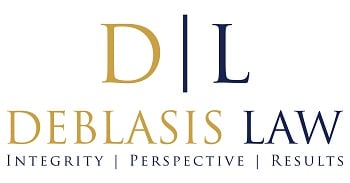Every good debt collector knows that the first communication with a consumer concerning the collection of a debt must be accompanied by, or within five days followed by, a debt validation notice (“DVN”) under the Fair Debt Collection Practices Act (“FDCPA”), 15 USC § 1692g. New rules from the Consumer Financial Protection Bureau (“CFPB”), effective November 30, 2021, include a model form DVN, which allows debt collectors a “safe harbor” for the DVN’s information and form requirements. But the new model form may not cover all your bases.
Overshadowing:
Under the FDCPA, a DVN must (among other things) allow a consumer 30 days to dispute the debt. Debt collectors are not required to wait for the 30-day notice period to lapse before filing suit, but they have to be cautious not to create confusion. Say, for instance, a consumer receives a DVN allowing 30 days to dispute the debt followed a week later with a lawsuit allowing 28 days to answer. These circumstances are often referred to as “overshadowing,” because ongoing collection efforts can “overshadow” the rights accorded the consumer by the FDCPA.
To avoid overshadowing, a debt collector might consider adding explanatory language to the DVN, such as that formulated by the 7th Circuit U.S. Court of Appeals in Thomas v. Law Firm of Simpson & Cybak, 392 F.3d 914, 919-20:
This advice pertains to your dealings with me as a debt collector. It does not affect your dealings with the court, and in particular it does not change the time at which you must answer the complaint. The summons is a command from the court, not from me, and you must follow its instructions even if you dispute the validity or amount of the debt. The advice in this letter also does not affect my relations with the court. As a lawyer, I may file papers in the suit according to the court’s rules and the judge’s instructions.
State Regulation:
Many states have enacted debt collection requirements that differ from, or exceed, the mandates of the FDCPA. Prudent debt collectors will ensure that their DVNs take those state regulations into account.
For example, Ohio Revised Code §1349.72, pertaining to enforcement of junior mortgages, requires a written notice to consumers similar to the DVN. In many ways, the state notice overlaps the requirements of the FDCPA. But, §1349.72 also requires that the notice inform the consumer of the availability of Chapter 7 and/or Chapter 13 bankruptcy relief, that Chapter 13 relief may help the consumer save a home from foreclosure, and that the consumer has a right to engage an attorney. By adding such information to their DVNs, debt collectors can satisfy the requirements of both state and federal law.
Although the new model form DVN may help debt collectors comply with the information and form requirements of the FDCPA, it might not completely cover your bases. DeBlasisLaw stands ready to help you ensure that your DVN is clear, concise, and compliant. Contact us for a consultation.
